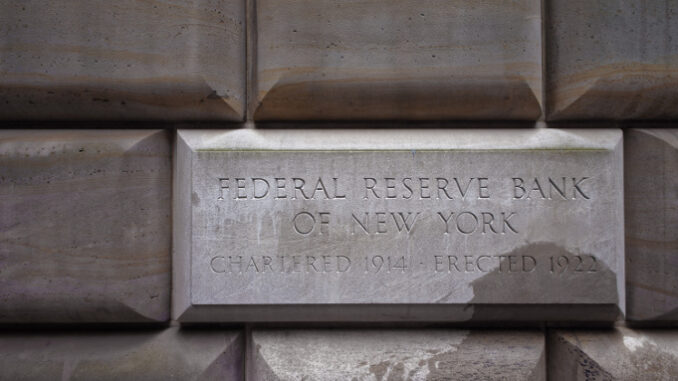
“Whoever controls the volume of money in any country is absolute master of all industry and commerce.” -James A. Garfield, 20th President of the United States
PREFACE by Catherine Austin Fitts
The Solari Report is pleased to present the next Special Solari Report in our federal financial series – a summary overview of the legal history and organization of the Federal Reserve by Michele Ferri and Jonathan Lurie.
The NY Fed and its member banks serve as the depository for the US government. If $21 Trillion is missing from US accounts, no doubt some of it went missing through those bank accounts. This makes the push for a Congressional audit of the Federal Reserve particularly timely.
If the US government has systematically refused to obey the laws related to financial management, the Federal Reserve and its banks and their members as depositories or as primary dealers in Treasury securities have continued to effect the transactions that made these illegalities possible. The question is why? Why is the Fed financing transactions that are either outside the law or financing an operation whose finances are outside of the law?
Given that the Federal Reserve banks are private and their specifics of their ownership is secret, the potential conflicts are profound. The proof is in the pudding – the centralization of wealth in America over the last three decades has been very significant. Unfortunately, it correlates with bailouts and trillions in missing money rather than markets and meritocracy. America was just dropped from the top 10 most innovative countries.
To understand, let alone answer, these questions it is essential to know the legal history and organization of the Federal Reserve. If the federal government is operating this far outside the law, it is hard to imagine how the Federal Reserve as its bank and securities dealer could be operating within the law. Enforcing the federal financial laws may require enforcement actions against the Federal Reserve or fundamental reform to the Federal Reserve authorities and structure.
We do not need to change the Constitution – we need to enforce it. However, to enforce the Constitution, we may need to change the fundamental structure of how we govern and manage our money to ensure that it complies with and supports our Constitution.
Ferri and Lurie have done a remarkable job of distilling the information to an accessible form. Here it is.
Related Reading:
You can find the full federal financial series at Enforce the Constitution: Treasury & Fed
views: 16
